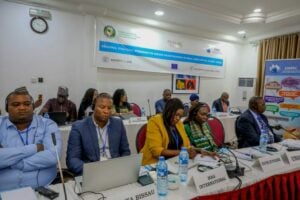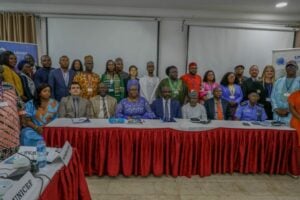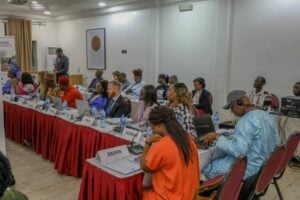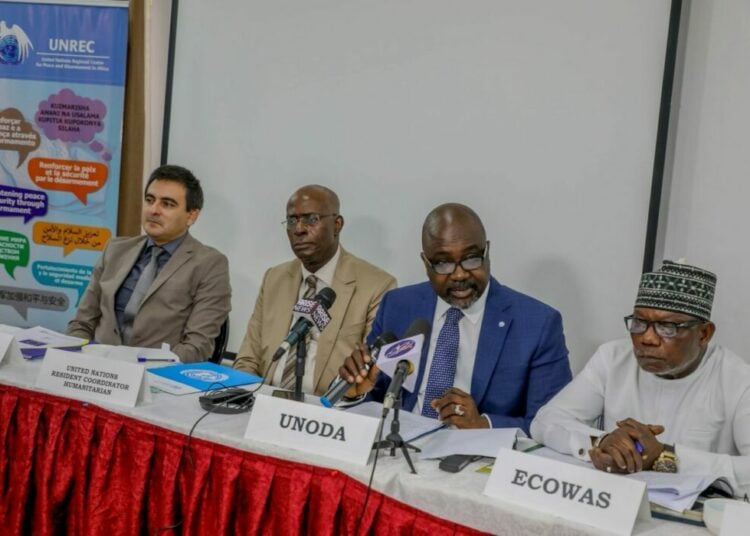In a strategic push to tackle the growing complexity of arms proliferation in West Africa, the United Nations Regional Centre for Peace and Disarmament in Africa (UNREC), in collaboration with the ECOWAS Commission, launched a two-day regional workshop in Abuja focused on Gender Mainstreaming in Small Arms Control.
The event, which was held on Wednesday, was part of Phase II of a European Union-supported initiative led by the United Nations Office for Disarmament Affairs (UNODA). It aims to promote gender-responsive implementation of the United Nations Programme of Action (PoA) on Small Arms and Light Weapons and its International Tracing Instrument (ITI).
The opening session featured high-level dignitaries including Ambassador Abdel-Fatau Musah, ECOWAS Commissioner for Political Affairs, Peace and Security, who delivered a compelling keynote. Musah emphasised the urgent need for a comprehensive approach to arms control in a region beset by terrorism, intercommunal violence, and weak governance structures.
“Terrorism is now the defining issue,” Musah declared, adding that, “arms control must go beyond just small arms, we are now looking at autonomous weapons.”
The ECOWAS commissioner stressed the importance of transparency in arms importation, noting that “as far as ECOWAS is concerned, there is high transparency when it comes to arms importation by Member States.” However, he highlighted the need for stronger regional consensus on the legal parameters around weapon imports and the growing threat of locally manufactured weapons that are reportedly “more powerful than AK-47s.”
Musah called for a deeper investigation into how weapons flow within and out of communities, warning that “hardly any country in West Africa has a robust system of weapons removal.” He urged for a shift in focus from surface-level symptoms to underlying causes of arms purchases, referencing the ECOWAS Conflict Prevention Framework as a policy response aimed at tackling root causes such as political instability, economic marginalization, and climate change.
On the gender front, the commissioner called for a shift in the narrative around women and youth in the context of armed violence.
“Women must not be seen merely as victims, but as agents of change,” he said. “Gender parity is not optional; women and young people are still very much underrepresented at all levels of decision-making.”
Musah also pointed to the necessity of community-led solutions, especially in regions where formal governance structures are absent.
“In many areas, people are forced to accept help from anyone, even terrorists, because there is no proper governance,” he noted, citing the farmer-herder conflict and intercommunal crises as examples of challenges that require local policing and participatory approaches to peacebuilding.
The workshop convened experts from ECOWAS member-states, national commissions on small arms and light weapons (SALW), civil society actors, youth advocates, and peacebuilding practitioners. It built on the outcomes of the Fourth Review Conference (RevCon4) held in New York in 2024 and earlier regional preparatory meetings.
Representatives from the European Union and the United Nations Resident Coordinator’s office in Nigeria also expressed commitment to supporting inclusive and evidence-based approaches to disarmament in the region.
As ECOWAS marks its 50th anniversary this year, Ambassador Musah reiterated the Commission’s unwavering commitment to arms control and regional security.
“This is more than a platform for ideology,” he concluded. “It is about action, about identifying concrete interventions that save lives and secure peace.”
More Photos Below:








